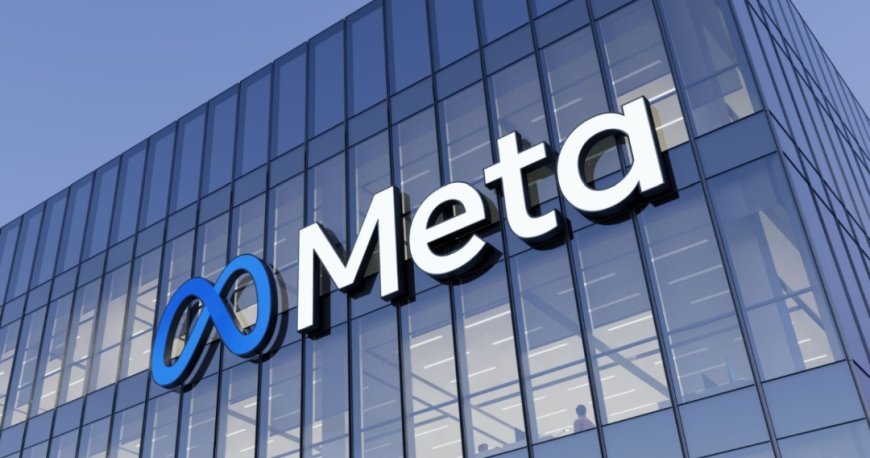EU Imposes Record $1.3 Billion Fine on Meta for Data Privacy Violations
Meta, the parent company of Facebook, faces a historic €1.2 billion fine for breaching EU privacy laws.

Meta, the parent company of Facebook, has been hit with a historic fine of €1.2 billion ($1.3 billion) by European Union regulators for breaching EU privacy laws. The penalty stems from the transfer of Facebook users' personal data to servers located in the United States.
The European Data Protection Board announced the fine after an investigation conducted by the Irish Data Protection Commission, the primary regulator overseeing Meta's operations in Europe. This development highlights the ongoing uncertainty surrounding the legal transfer of EU users' data to servers outside the region.
According to the EU regulator, Meta's processing and storage of personal data in the United States violated Europe's renowned data privacy law, the General Data Protection Regulation (GDPR). Chapter 5 of the GDPR outlines the conditions under which personal data can be transferred to third countries or international organizations.
This fine sets a new record under the GDPR, surpassing the previous highest penalty of €746 million ($805.7 million) imposed on Amazon in 2021. In addition to the fine, Meta has been instructed to halt the processing of European users' personal data in the United States within six months.
Andrea Jelinek, Chair of the European Data Protection Board, emphasized the seriousness of Meta's infringement, describing it as "systematic, repetitive, and continuous" due to the large number of Facebook users in Europe and the massive volume of personal data being transferred. This unprecedented fine serves as a clear warning to organizations that significant violations will result in severe consequences.
Facebook Continues to Operate in Europe Despite Record-Breaking Fine
Meta, the parent company of WhatsApp, Instagram, and Facebook, has announced its intention to appeal the ruling and the accompanying fine. The company assured users that there would be no immediate disruption to Facebook's services in Europe.
According to Meta, the issue at hand revolves around a "conflict of law" between US data access regulations and the privacy rights of European users. Both EU and US policymakers are actively working towards resolving this conflict through a new transatlantic Data Privacy Framework.
This new framework aims to address concerns raised by the European Union since the transatlantic legal framework known as Privacy Shield was invalidated by Europe's top court in 2020. The absence of a replacement for Privacy Shield puts numerous businesses in a state of uncertainty, as they rely on the ability to transfer user data from the EU to other jurisdictions.
Legal experts warn that without a Privacy Shield successor, thousands of businesses face potential disruption in their operations. However, the European Data Protection Board's decision to impose the fine seems to have overlooked the progress being made by policymakers in resolving the underlying issue.
In a statement, Meta's President of Global Affairs, Nick Clegg, and Chief Legal Officer, Jennifer Newstead, criticized the board's decision, calling it flawed, unjustified, and setting a dangerous precedent for other companies engaged in data transfers between the EU and the US. They emphasized the importance of data transfer for the functioning of the global open internet, highlighting that numerous businesses and organizations rely on this ability to provide essential services used by people on a daily basis.
Ireland's Role as a Hub for Big Tech Companies
Ireland's Data Protection Commission had previously imposed fines totaling nearly $1 billion on Meta for alleged GDPR violations since late 2021. However, in this particular case, the commission decided against fining Meta, deeming such action disproportionate to address the infringement.
The regulator emphasized that its final ruling was based on the decision of the European Data Protection Board. Ireland faces the delicate challenge of balancing its relationship with prominent US tech companies and aligning with the European Union's stringent approach to tech regulation.
Dublin serves as the European headquarters for major tech giants such as Apple, Meta, Twitter, and Google, contributing significantly to job creation and economic growth in the country. Ireland's attractive corporate tax rate of 12.5% has played a pivotal role in attracting these companies. It was one of the last countries in the Organization for Economic Cooperation and Development to join a global agreement in 2021, which established a minimum tax rate of 15% for multinational firms.
In a previous legal battle, Apple successfully appealed against a European Commission ruling that it owed Ireland €13 billion ($14.9 billion) in taxes. The court ruled that the EU executive had not proven that Apple had received unlawful state aid through favorable tax agreements with Dublin. The Irish government sided with Apple in that dispute.
Also Read: Bill Gates's Untold Insights: Life Lessons He Wishes Someone Had Shared with him when he was young
































































